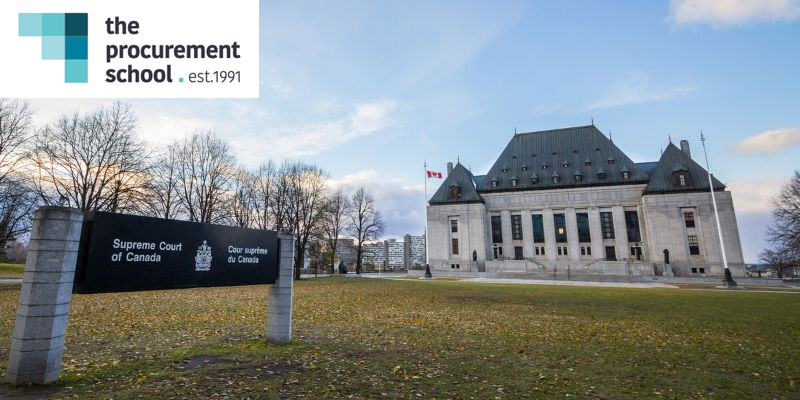Legal Edge readers who have been following the recent court decisions in Mega Reporting Inc. v Yukon (Government of), 2018 YKCA 10 will know that the Yukon Court of Appeal dismissed a claim for damages filed by an unsuccessful proponent for court reporting services. The RFP incorporated a two-stage evaluation process under which proposals not meeting the stated threshold for experience and performance on a technical basis would receive no further consideration. Mega Reporting Inc. did not meet the threshold and was unsatisfied with the debriefing process provided by the Yukon Government, initiating a claim for damages. It became clear at the debriefing that the government had used a scoring method that had not been set out in the RFP and that there were no contemporaneous records made by the evaluation committee. As a result, the government was unable to demonstrate that the evaluation and award process was fair and transparent.
The crux of the case centers around the extent of protection provided by a clause in the RFP that read, in part:
“…by submitting a Proposal, [bidders] irrevocably waive[d] any claim, action, or proceedings against he Government of Yukon…for damages, expenses or costs… for any reason including: any actual or alleged unfairness on the part of the Government of Yukon at any stage of the Request for Proposal process…”
Relying on Tercon Contractors Ltd. v British Columbia (Transportation and Highways) 2010 SCC 4, the trial judge found it would be contrary to public policy to allow Yukon to rely on the clause, awarding $335,000 in damages for breach of fairness in evaluating proposals. The Court of Appeal overturned that decision stating that the clause was clear, applied to the facts, and that it would not be contrary to public policy to uphold the clause. Mega Reporting Inc. sought leave to appeal that decision to Supreme Court of Canada, and procurement geeks across the country waited with bated breath.
On April 25, 2019 the Supreme Court of Canada dismissed Mega Reporting Inc.’s leave to appeal. As usual, no reasons for refusal to hear the case were given by our highest court.
This case serves as a stark reminder of the time, resources and appropriate expertise that must be devoted to the planning phase for procurements. Balancing clear limitation of liability and exclusion clauses with a well-structured, transparent and defensible evaluation process lay the critical groundwork for maintaining vendor relationships, enhancing stakeholder confidence and, ultimately, delivering successful project outcomes.
If you or your team could use a refresher on key elements of procurement planning such as options identification, cost benefit analysis, and incorporation of risk analysis and mitigation strategies such as these RFP clauses, join us online for PSPP 201, starting June 17th.
As the above case demonstrates, this area of practice is continuing to evolve as new court rulings and strategies for success emerge. Learn from our expert facilitators as well as other seasoned public procurement professionals in this country-wide cohort.
Readers are cautioned not to rely upon this article as legal advice nor as an exhaustive discussion of the topic or case. For any particular legal problem, seek advice directly from your lawyer or in-house counsel. All dates, contact information and website addresses were current at the time of original publication.
Disclaimer: The views and opinions expressed in this article are those of the Subject Matter Experts and do not necessarily reflect the official policy or position of The Procurement School.
